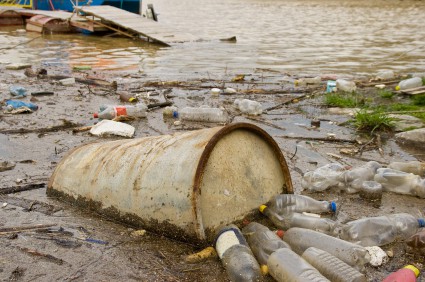
Soil Testing
Whether you need commercial soil testing or you are starting an edible garden, a soil survey will inform you of what is in your soil. Soil testing involves collecting soil samples, analysis at a lab, and ultimately, an expert helping to interpret your lab results.
Historical Land Use & Soil Quality Testing
An old orchard or gas station comes with a laundry list of concerns when it comes to soil contamination. Some legacy pesticides and herbicides will linger in soil for many decades, and oil and gas from leaking underground storage tanks (LUSTs) may present significant legal and financial liability for any landowner. Equally worrisome are historic dump sites or any pre-1980’s building lot. Before 1980 lead paint was common and when buildings were painted the old paint was stripped and discarded in the nearby soil where it still often lingers in dangerously high concentrations. Historic land use data is important when determining relative risks and identifying what soil pollutants should be tested for.
People often don’t know previous uses of an existing property and it is impossible to know what pollutants are present in soil without testing. Most soil contaminants are impossible to detect without professional soil laboratory analysis.
Common Soil Assessment Parameters
Soil testing and soil science are complex and far-reaching subjects. When embarking on a soil survey there are two primary categories of soil analysis:
Determining Appropriate Fertilizers and Soil Amendments
This is for the vintner, gardener or orchardist interested in optimizing the health of their respective plants. Your soil expert should steer you in the right direction, but the most common parameters for soil nutrient analysis include:
- Soil Chemistry and Structure
- Cation saturation, pH, compaction, organic matter
- Essential Soil Elements
- Soluble salts, hydrogen, boron, nitrogen, phosphorous, potassium, calcium, sodium, sulfur
- Metals in Soil
- Copper, iron, magnesium, manganese, zinc
Notably absent from the above list are hundreds of common soil contaminants associated with industrial farming, manufacturing, oil or gas spills, etc. The purpose of a nutrient analysis is to determine what, if any, soil amendments are needed to optimize growing conditions for your specific plant list. A good soil consultant and soil lab will ask what you are growing and make specific recommendations about which nutrients to add to your soil.
Testing for Soil Contaminants
For compliance testing or health concerns about soil we consider testing for the following common soil pollutants. This is not an exhaustive list, but these soil contaminants are often included in an environmental soil assessment:
- Heavy Metals in Soil
- Antimony, Arsenic, barium, Beryllium, Cadmium, Chromium, Cobalt, Copper, Lead, Molybdenum, Nickel, Selenium, Silver, Thallium, Vanadium, Zinc and Mercury
- Legacy Soil Pesticides
- Alpha-BHC, beta-BHC, gamma-BHC, delta-BHC, heptachlor, aldrin, heptachlor epoxide, endosulfan I, dieldrin, 4,4′-DDE, endrin ND, endosulfan II, endosulfan sulfate, 4,4′-DDD, endrin aldehyde, 4,4′-DDT, alpha-chlordane, gamma-chlordane, methoxychlor, toxaphene
- Polycyclic Aromatic Hydrocarbons (PAH)
- Traces of oil, gas and other fuel byproducts found in soil, including (TPH-G, GRO) and (TPH-D, DRO)
- Qualitative or Quantitative Sewage Screen
- Indicator species of bacteria associated with sewer pipe leaks can be analyzed in soil, though other animals present in nature can complicate this analysis
- Semi-volatile Organic Compounds (SVOC) and Volatile Organic Compounds (VOC testing) for soil chemical off-gassing
Healthy Building Science will sample and test your soil and provide a user-friendly report that takes the guesswork out of soil science.
Soil Testing Bay Area Projects

- Soil nutrient analysis for vineyards in Sonoma and Napa
- Soil pesticide testing for a home garden in San Jose
- Lead and heavy metal soil testing for San Francisco commercial buildings
- Commercial soil testing for cleaning up a marijuana grow operation
- Soil testing in a Santa Rosa schoolyard
- Soil testing a San Francisco Victorian home yard for lead
- Arsenic soil testing for a contaminated well water site in Sunnyvale
Soil Inspection San Francisco Bay Area
Healthy Building Science is an environmental consulting firm providing soil consulting and soil testing services for commercial, residential, multi-family buildings, offices, industrial and manufacturing workplaces, hospitals and medical facilities, and single-family homes in the greater San Francisco Bay Area and Northern California. Cities we service include San Francisco, San Jose, Oakland, Sacramento, Santa Rosa, Hayward, Sunnyvale, Fremont, Concord, Salinas, Santa Clara, Berkeley, Vallejo, Fairfield, Antioch, Richmond, Daly City, San Rafael, San Mateo, Vacaville, San Leandro, and Livermore and Alameda County, Contra Costa County, Marin County, Napa County, San Mateo County, Santa Clara County, Solano County and Sonoma County.
We would be pleased to become your go-to soil expert and help you with any of your soil laboratory testing requirements.

